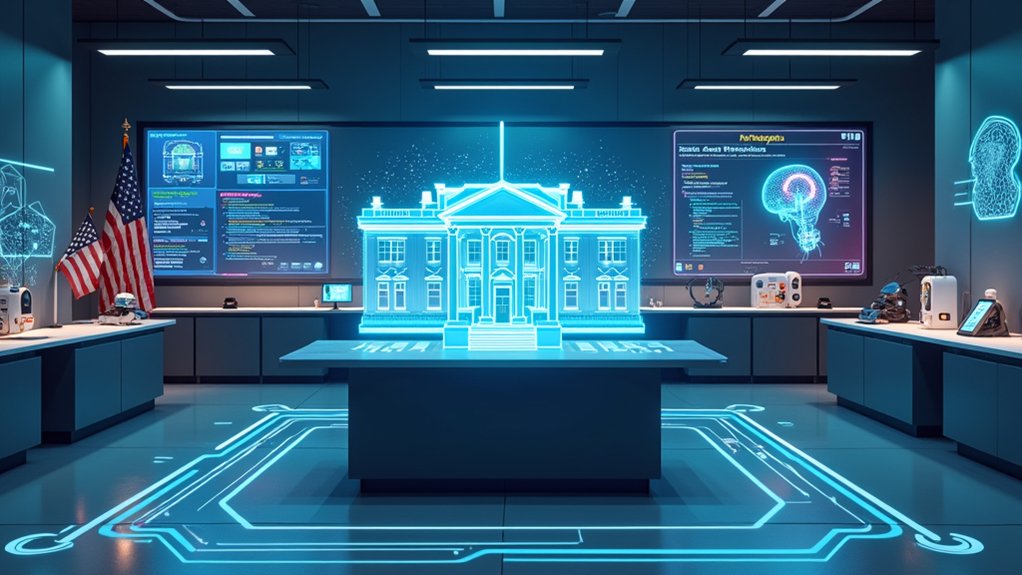How will the next generation navigate a world dominated by artificial intelligence? The White House thinks it has the answer: start ’em young. A recent executive order aims to foster AI interest and expertise early, maintaining America’s global tech dominance. Not a moment too soon, frankly.
The initiative establishes a White House Task Force on AI Education, chaired by the Director of the Office of Science and Technology Policy. Fancy title, serious mission. The Department of Education and NSF are now directed to prioritize AI in grants and research. Money talks.
With AI education now a federal priority, Washington’s making its bet: fund the future before someone else does.
AI is transforming everything—work, innovation, daily life. Kids need skills to use and create it. The administration’s plan? Integrate AI literacy throughout education, train teachers thoroughly, and expose students to AI concepts early. Similar to DEC’s AI Literacy for All course, these programs aim to provide foundational knowledge for students of any discipline. Lifelong learning resources will help adults adjust too. Because obsolescence is a real career threat these days.
The numbers make a compelling case. About 70% of young adults see generative AI as an opportunity. AI skills potentially command a 25% wage premium. No wonder. Employer demands in AI-related jobs are changing 25% faster than in traditional roles. Critical thinking, creativity, and coding matter. So do human skills like empathy. Robots can’t fake that. Yet.
In classrooms, AI tutors will personalize learning while administrative AI handles mundane tasks like grading. Teachers might actually teach again. Students with disabilities gain through accessibility features like text-to-speech. Abstract concepts become clearer through AI-generated visuals.
Challenges exist. The digital divide remains stubbornly real. AI bias, misinformation, and academic cheating present problems. Privacy concerns loom large. Deepfakes, anyone?
Global partnerships between governments, industry, and academia are emerging worldwide. Estonia has AI Leap, India launched AI for Youth, and Spain created the AI Challenge focusing on marginalized youth. Similar to Africa’s initiatives providing learning paths from basic to advanced AI concepts, these programs are creating educational foundations worldwide. Open-source tools from organizations like MIT RAISE democratize access.
The race is on. Youth will either master AI or be mastered by it. No pressure, kids.




